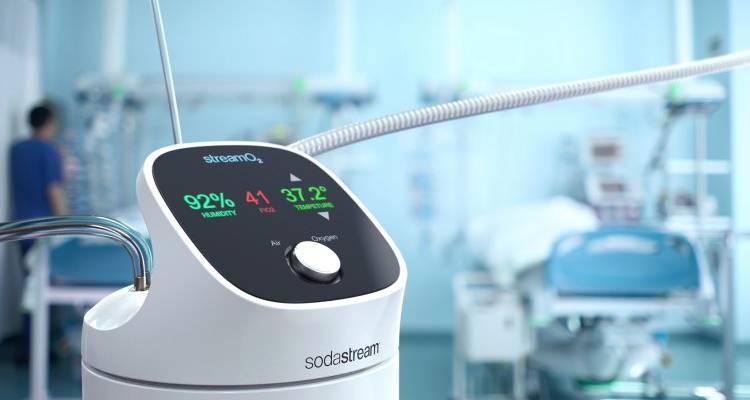The world-famous Israeli beverage company teamed up with Hadassah hospital to make a new COVID-19 “breathing machine.”
Never dismiss the power of brainstorming. At the height of the first corona wave in Israel, when there was a feared shortage of ventilator machines, medical staff at Hadassah Ein Kerem hospital in Jerusalem were discussing the problem and one of them had an idea.
“I was sitting with a friend named Shlomo Friedman, a biotechnology engineer, and he thought for a few minutes and suddenly told me – Sodastream is the solution,” said Dr. Akiva Nachshon, a senior ICU physician. “I looked at him and said, ‘What’s the connection?’”
Friedman realized the principles SodaStream uses to put bubbles in soda might help coronavirus patients to breathe because ventilators, aside from being in short supply, were invasive and themselves caused side-damage. Nachshon called SodaStream, where head of R &D Avi Cohen got the message, and the two met later that day.
Sodastream latched on to the idea, and less than four months later, the StreamO2 prototype was aproved by health officials for a 40-person clinical trial.
The device works not by sticking a tube into the lungs like a ventilator, but by pushing a high flow rate of oxygen mixed with air into the patient’s nose with controlled temperature and humidity. The result is a low-cost machine that can help coronavirus patients suffering from respiratory distress who are not in serious condition and can at least breathe on their own.
Ventilator machines that would have been used for such patients are now freed up for those in serious condition.
“In some patients it is preventative, in others it can delay the respiration and in fact shorten the respiration that is expected of the patient,” said Nachshon.
Trials are underway at Hadassah and, if successful, SodaStream will ramp up for mass production.
The innovative Israeli company SodaStream, known by many for its Super Bowl commercials featuring Hollywood superstar Scarlett Johansson, was bought in 2018 by PepsiCo in a blockbuster $3 billion acquisition to add healthier and environmentally friendly products to its line.










